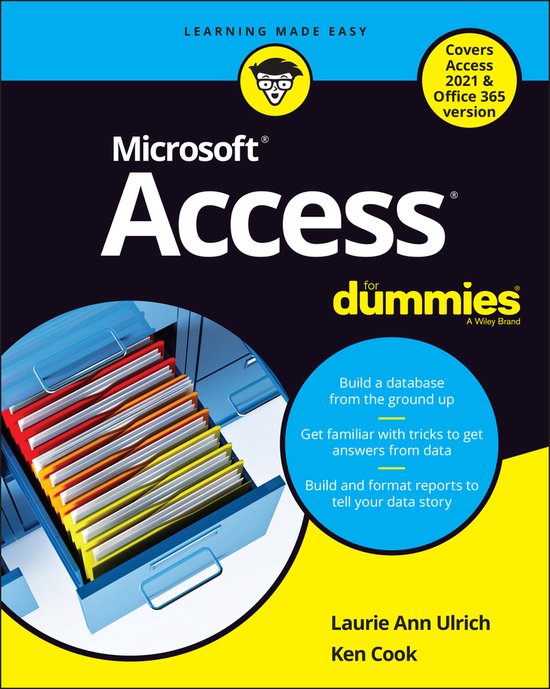Access for dummies

Uiterlijk 24 januari in huis
Become a data-boss with this one-stop guide
Databases are powerful tools. And they’re not just for data science wizards! In this book, you’ll learn how to design, create, and organize useful and intuitive Access databases perfect for your office, classroom, or anywhere you need to wrangle data. From navigating the Access interface to creating professional-looking reports, this book walks you through the steps you need to take to unlock the potential of your organization’s data. There’s nothing standing between you and the insights your data holds!
Inside…
Navigate the Access interface Import, export, and organize data Design your database tables Edit your data automatically Create useful forms Harness cloud functionality Build powerful queries Draft intuitive reportsBecome a database boss —and have fun doing it—with this accessible and easy-to-follow guide to Microsoft Access
Databases hold the key to organizing and accessing all your data in one convenient place. And you don’t have to be a data science wizard to build, populate, and organize your own. With Microsoft Access For Dummies, you’ll learn to use the latest version of Microsoft’s Access software to power your database needs.
Need to understand the essentials before diving in? Check out our Basic Training in Part 1 where we teach you how to navigate the Access workspace and explore the foundations of databases.
Ready for more advanced tutorials? Skip right to the sections on Data Management, Queries, or Reporting where we walk you through Access’s more sophisticated capabilities. Not sure if you have Access via Office 2021 or Office 365? No worries – this book covers Access now matter how you access it.
The book also shows you how to:
Handle the most common problems that Access users encounter Import, export, and automatically edit data to populate your next database Write powerful and accurate queries to find exactly what you’re looking for, exactly when you need itMicrosoft Access For Dummies is the perfect resource for anyone expected to understand, use, or administer Access databases at the workplace, classroom, or any other data-driven destination.
- 1 Bekijk alle specificaties
Taal: en
Bindwijze: Paperback
Oorspronkelijke releasedatum: 03 maart 2022
Aantal pagina's: 432
Hoofdauteur: Laurie A. Ulrich
Tweede Auteur: Ken Cook
Hoofduitgeverij: For Dummies
Editie: Office 2021 Edition
Product breedte: 183 mm
Product hoogte: 28 mm
Product lengte: 229 mm
Studieboek: Nee
Verpakking breedte: 191 mm
Verpakking hoogte: 30 mm
Verpakking lengte: 238 mm
Verpakkingsgewicht: 815 g
EAN: 9781119829089